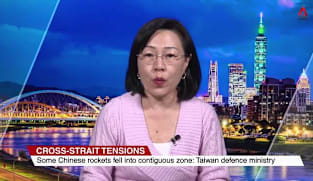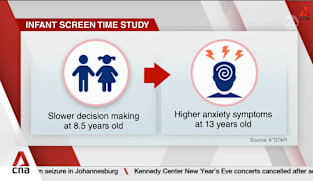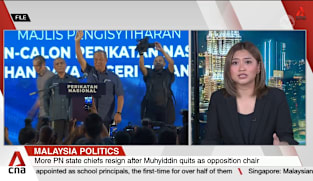Leon Perera on supporting healthcare
The main challenge in meeting Singapore’s long-term healthcare needs is to recruit and retain workers as well as raise their productivity, said MP Leon Perera in Parliament on Wednesday (May 10). He said the aim should be to minimise churn so that there is a core of professionals from whom future leaders can be drawn, and sufficient accumulation of experience and skills to elevate service and effectiveness so as to ensure good outcomes for patients. To this end, Mr Perera offered several proposals. One was to track hourly compensation for healthcare workers, regularly benchmark it against other developed countries with which Singapore competes for talent, and publish the results. He also made suggestions to manage working hours and burnout. There is no point raising pay, he said, if there is under-capacity and working hours rise such that pay per hour stays the same or actually falls. With plans to increase the number of allied healthcare professionals, Mr Perera said they can play a critical role in community healthcare, nudging healthier lifestyles and help-seeking behaviours as well as helping those with chronic conditions prevent the development of complications. On primary healthcare, he called for regular surveys of general practitioners (GPs) to understand their experiences and perception of gaps in the system, and tap them as a source of ideas for constructive policy change. He also called on the Ministry of Health (MOH) to look into getting individual GPs and corporate groups that run GP clinics on board the Government procurement system for drugs so that all parties can obtain lower prices on the basis of larger bulk purchases. He added that with increased competition over the long term, some GPs have ended up with spare capacity. He urged MOH to identify these GPs and engage them to augment capacity in polyclinics or other public healthcare institutions. Mr Perera also asked if the Government will explore using artificial intelligence to augment capacity in mental healthcare, seeing as Singapore’s ratio of clinical psychologists and psychiatrists lags behind some other developed countries.
The main challenge in meeting Singapore’s long-term healthcare needs is to recruit and retain workers as well as raise their productivity, said MP Leon Perera in Parliament on Wednesday (May 10). He said the aim should be to minimise churn so that there is a core of professionals from whom future leaders can be drawn, and sufficient accumulation of experience and skills to elevate service and effectiveness so as to ensure good outcomes for patients. To this end, Mr Perera offered several proposals. One was to track hourly compensation for healthcare workers, regularly benchmark it against other developed countries with which Singapore competes for talent, and publish the results. He also made suggestions to manage working hours and burnout. There is no point raising pay, he said, if there is under-capacity and working hours rise such that pay per hour stays the same or actually falls. With plans to increase the number of allied healthcare professionals, Mr Perera said they can play a critical role in community healthcare, nudging healthier lifestyles and help-seeking behaviours as well as helping those with chronic conditions prevent the development of complications. On primary healthcare, he called for regular surveys of general practitioners (GPs) to understand their experiences and perception of gaps in the system, and tap them as a source of ideas for constructive policy change. He also called on the Ministry of Health (MOH) to look into getting individual GPs and corporate groups that run GP clinics on board the Government procurement system for drugs so that all parties can obtain lower prices on the basis of larger bulk purchases. He added that with increased competition over the long term, some GPs have ended up with spare capacity. He urged MOH to identify these GPs and engage them to augment capacity in polyclinics or other public healthcare institutions. Mr Perera also asked if the Government will explore using artificial intelligence to augment capacity in mental healthcare, seeing as Singapore’s ratio of clinical psychologists and psychiatrists lags behind some other developed countries.



















